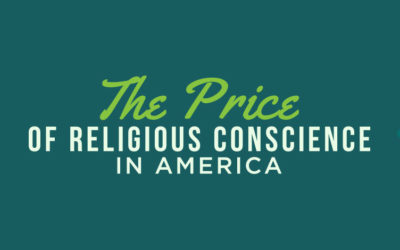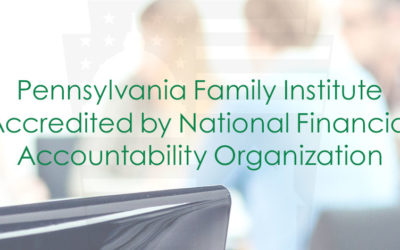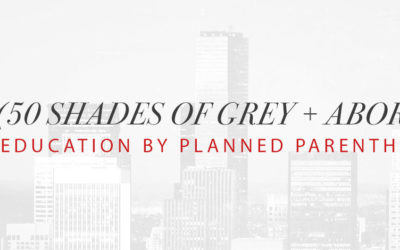Issue
Standards for Explicit Sexual Content in Schools
KEY POINTS
- School Boards are legally permitted to create policy setting standards for preventing age-inappropriate sexually explicit content in their curriculum and library.
- The standard ought not be: “As long as this book doesn’t land us in jail for giving it to a minor, the sexually explicit content is welcome in our curriculum or the school library.”
- Written policy protects students, parents, employees, and the school
and ensures better educational content will fill the finite space in curriculum and in libraries. - Schools should prioritize material that provides rich educational value over material that may provide similar value but also has age-inappropriate sexually explicit content.
- Age-Appropriate policies are not directed at viewpoint and are not banning the book from student possession. They are exercising the schools prerogative to determine what to include in its own library and curriculum.
Standards for Sexually Explicit Content in Schools
Schools must engage in line-drawing for age appropriateness of sexually explicit content in their library and curriculum. Criminal laws are one required line prohibiting schools from giving materials to minors in curriculum or library that a court deems pornographic or obscene. But what about sexually explicit content that does not rise to the extremely high bar of criminal law?
School boards are legally permitted to articulate standards that go beyond “would we land in jail for giving this book to a minor?” to prevent other age-inappropriate sexually explicit content in their curriculum and school library. Unfortunately, many schools have no policy standards for sexually explicit material beyond criminal law.
Schools with written age-appropriate standards for sexually explicit materials that differ for elementary, middle, and high schools protect students and ensures better educational content will fill the finite space in curriculum and in libraries.
But such written policies also protect the school’s staff and district from costly litigation. Even without written policy, a school librarian, principal, or school board is permitted to remove a particular title they deem age-inappropriate sexually explicit material. But with written policy standards, the school is less susceptible to baseless allegations that the title was removed for an impermissible viewpoint discriminatory reason.
School employees still have wide discretion to select and purchase books that comport with the age-appropriate standards in written policy set by the school board, and from that universe of materials, parents then have ultimate authority to make additional age-appropriate determinations for their own child and should have authority to restrict certain titles for their own child.
Individuals who desire to see sexually explicit materials in the hands of minors sometimes argue that such policies are “book bans.” Attempts at labeling common-sense school standards as “book bans” have been rejected by courts. See, C.K.-W. v. Wentzville R-IV Sch. Dist., 619 F.Supp. 3d 906, 909-910 (E.D. Mo. 2022) (“A school district does not ‘ban’ a book when, ‘through its authorized school board,’ it ‘decides not to continue possessing [a] book on its own library shelves.’”) Citing ACLU of Fla., Inc. v. Miami-Dade Cnty. Sch. Bd., 557 F.3d 1177, 1218 (11th Cir. 2009).
A parent, for example, who wants to buy sexually explicit books for their own child to read are not prevented from doing so by such school policies. School policies setting forth its own age-appropriate standards for sexually explicit content in its own curriculum and school library do not even prohibit a student from bringing their own book to school or from reading it in an appropriate time, such as study hall. But school districts do not have to put such explicit books in their own curriculum or in the school library, and such a decision by the school is not a ban on books.
Such policies treat inappropriate sexually explicit content the same regardless of whether the sexually explicit depictions or descriptions happen to be between straight, gay, or even a lone person. As such the argument made by those who desire to see sexually explicit materials in the hands of minors, that these policies are directed at LGBT people, is false.
Too many schools lack baseline standards regarding sexually explicit content in school libraries. Schools ought to spend the finite time in the day on academic excellence, and sexually explicit content detracts from that. Explicit sexual depictions and descriptions may sell, but refusal to purchase it is no ban. Districts can decide not to buy and stock sexually explicit content. If you are a school board member who desires to implement such a policy, we are glad to assist you.

Related Articles
Good reason why our government is involved with marriage
With opinions on the definition of marriage flooding your news feed today, you'll probably come across a few comments to the tune of "the government shouldn't be involved with marriage in the first place." There is a reason the government is involved and it's because...
Big Day for Marriage
On Tuesday, April 28, the United States Supreme Court will hear arguments in Obergefell v. Hodges, in which the Court will decide: 1) Does the Fourteenth Amendment require a state to license a marriage between two people of the same sex? 2) Does the Fourteenth...
Interview: The Klein family story – fined $135k for living out their faith
Aaron and Melissa Klein have been fined $135,000 and a "cease and desist" gag order placed on them against speaking out about what happened because they declined to bake a cake for a same-sex wedding. "People don't understand that it's the hardest decision to make...
From City on the Hill Student to City Council Candidate
Lauren Johnson attended City on the Hill in 2009 after finishing her junior year of high school. Six years later she's running for City Council. At City on the Hill (coming up July 19-25, 2015), we use the political process as a means to model leadership training. Our...
Six Reasons Why I’m Glad I Watched The Drop Box
By: Dan Bartkowiak After braving the icy elements in Central PA Tuesday night to see the opening of The Drop Box, I left very encouraged that I made the trip. Here's why: 1) The Drop Box beautifully told this amazing story. The film focuses entirely on Pastor Lee and...
PA Family Institute Accredited by National Financial Accountability Organization
With every financial donation given to our organization we are truly grateful for both the trust shown to us and the partnership created in advancing the protection of life, marriage & family and religious freedom. And we take our commitment to wise stewardship of...
Planned Parenthood’s Formula for Sex Education
Warning: linked content is not suitable for children. Thousands of young people - starting as early as age 6 - are taught sex-ed by Planned Parenthood every year.¹ This education could be summed up by the following: Porn x (50 Shades of Grey + Abortion) = Sex-Ed by...
Fatherhood Affirmed in Super Bowl Ads
It's encouraging to see fatherhood being affirmed and appreciated in this year's Super Bowl ads. Hopefully this shows we're moving away from the comic renditions of dumb and disconnected Dads to highlighting the important influence a father has on their family. Well...






